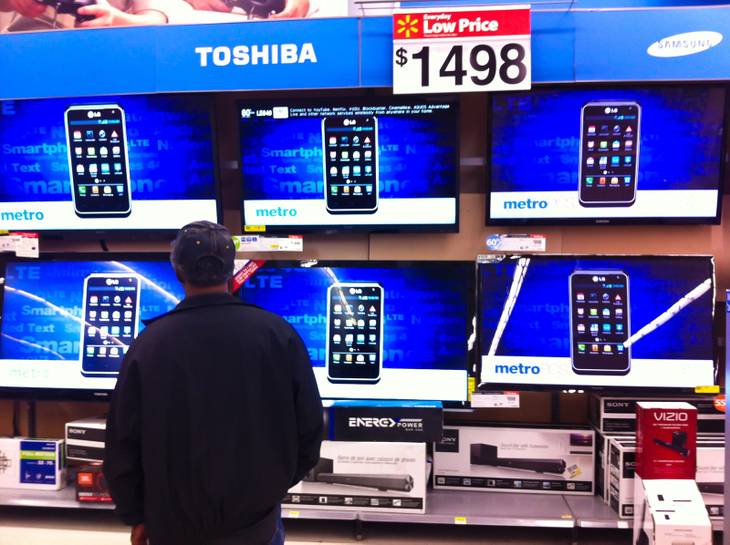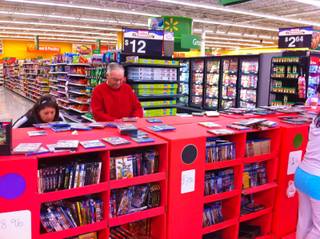The economy is slowly improving and Las Vegans are beginning to shake off the effects of the recession. They’re buying more cars, clothes and other consumer goods.
That sounds like a good thing.
But Nevadans also have some of the worst personal finances in the country.
And the local mini-spending boom is raising fears that people once again are taking on too much debt and returning to the bad habits of the boom era — buying stuff they can’t afford.
Consumer confidence is fueling the uptick. The economy is improving monthly, mass layoffs have all but stopped and many people feel their jobs are safe, even if their wages are flat. After several tight-fisted years, they are using savings and credit cards to finance new purchases, RCG Economics principal John Restrepo said.
“It doesn’t mean they’re earning a lot more money. They’re just more comfortable with spending,” Restrepo said.
Spending levels fall short of the boom years but are rising. Clark County car and auto parts dealers, furniture and accessories stores, and electronics and appliance retailers brought in a combined $409 million in taxable sales in January, according to state data. That’s up 20 percent from January 2012 and up 36 percent from January 2009, during the depths of the recession.
At the same time, consumer debt is rising nationwide. There was about $2.8 trillion in unpaid consumer loans nationally at the end of 2012, up from $2.6 trillion in 2011 and $2.4 trillion in 2009, according to the Federal Reserve.
Las Vegas’ Financial Guidance Center offers basic financial education and counseling. Advisers help people establish savings and checking accounts, file taxes and gather down payments for homes. President and CEO Michele Johnson said she has noticed a troubling trend: clients have more credit card debt than in recent years and are creating dangerous spending habits.
Many people, because of bankruptcies and foreclosure processing delays, have stopped paying their mortgages and now are spending that money on vacations, clothing and furniture instead.
Bankruptcy filings give people automatic protection from creditors and prevent foreclosure attempts against them. Processing delays, caused in part by Nevada’s October 2011 “robosigning” law, inadvertently let some people live for free – sometimes for months or years – while banks gather the paperwork they need to foreclose on the homes.
That doesn’t stop some residents from shopping. Too many local families are spending housing money on consumer goods, Johnson said. She had hoped the recession would teach people to be more careful.
“I’m not sure that’s going to hold true,” she said.
Las Vegas had one of the largest housing bubbles in the country and remains one of the cities hardest hit by the recession. The list of residents’ financial problems are daunting.
Nevada has the highest foreclosure rate, second highest mortgage delinquency rate and fourth highest credit card delinquency rate in the country. The valley has the highest percentage of underwater homeowners, whose mortgage debt exceeds their home value, and is tied for having the fourth worst consumer credit score in the country. The percentage of Las Vegans who use pawn shops, check cashing stores and other high-interest lenders is rising.
Las Vegans’ average credit card debt inched lower to $4,907 in the fourth quarter of last year, from $5,085 a year earlier. But the percentage of locals who were at least 90 days late on their payments rose to 1.26 percent from 1.09 percent, according to TransUnion, a research firm.
All told, a majority of Nevadans “are living on the edge of financial disaster,” the Corporation for Enterprise Development reported.
More than 60 percent of Nevada households have fewer than three months of savings to rely on in the event of a job loss, medical crisis or other financial emergency, according to the Corporation, a Washington, D.C., nonprofit group that in January ranked Nevada worst in the nation for residents’ ability to achieve financial security.
Still, despite the gloom, there are signs of improvement.
Clark County’s jobless rate dipped to 9.8 percent in February. That was down from 12.1 percent a year earlier and marked the first single-digit rate since December 2008, though the figure still was higher than the national rate of 7.7 percent.
The housing market also is improving, thanks in part to cash investors who are buying cheap homes in bulk to use as rentals. Sales prices, home values, new home sales and construction projects are on the rise, although still nowhere near the boom years.
Southern Nevada also saw a record 39.7 million visitors last year and a slight bump in gambling revenue.
“It’s not like everyone thinks the economy is great,” said Professor Elliott Parker, chairman of UNR’s Department of Economics. “They just have confidence things won’t get worse.”
Findlay Toyota owner Rich Abajian sees it firsthand. His Henderson auto dealership sold about 600 new and used cars last month, a five-year high. Monthly sales fell as low as 290 during the recession.
During the boom, consumers borrowed money against their homes to buy cars, boats and other pricey items with cash. During the bust, they stopped buying altogether. Now, people are trading in older cars and getting cheap auto loans to finance new purchases, Abajian said.
“I just hope we’re headed in the right direction,” he said of the economy.

